KADIN Net Zero Hub held the Indonesia Net Zero Summit 2022 on 11 November 2022. Still in the momentum of the G20 event, the Indonesia Net Zero Summit encourages the active involvement of various actors, including various industries in the private sector, the government, and financial service institutions, to participate in decarbonizing the national industry and collaborate in mutual support towards a low-emission future.
More than 1000 participants from various countries participated in this event. As a start, the summit was opened by Shinta W. Kamdhani as Chairwoman of B20 Indonesia, M. Arsjad Rasjid P.M. as Chairman of KADIN Indonesia, and Norimasa Shimomura from UNDP. The three emphasized the responsibility and role of industry in contributing to climate change and its mitigation efforts through decarbonization measures, as well as the importance of collaboration and mutual support from various parties in responding to the current post-pandemic world economic challenges, as also conveyed in the main theme of Indonesia’s G20, ‘recover together, recover stronger’.
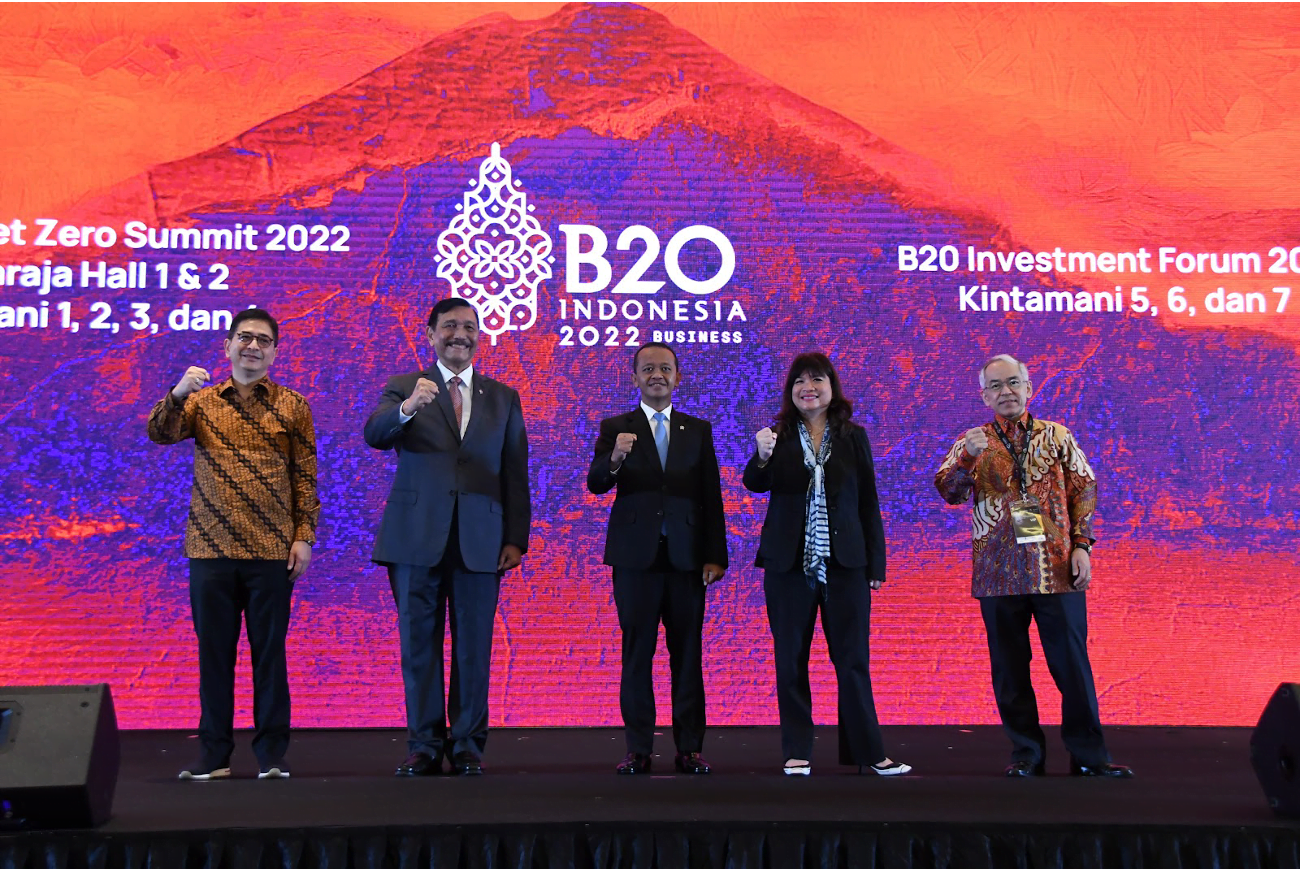
Furthermore, the Coordinating Minister for Maritime Affairs and Investment, Luhut Binsar Panjaitan said in his speech that Indonesia as an archipelagic country has tremendous potential to lead in the context of a low-emission energy transition at the global level. He said that the Government of Indonesia had raised the NDC 2030 target from 29% to 31.8% this year. The Coordinating Minister also explained the government’s plan to realize the Indonesia Emas 2045 Vision, which is based on sustainable principles and no longer only relies on the production and export of raw commodities, but instead has created added value and has become a key driver in technological advancement that will support the low emission energy transition process –not only for Indonesia, but for the world.
Next, the Minister of Investment, Mr. Bahlil Lahadalia conveyed the efforts and achievements that have been made by Indonesia to encourage investment in Indonesia to accelerate the downstream industry process that creates added value and supports the clean energy optimization agenda and, ultimately, realizes a green economy in the future.
Read more: Joint Opening Indonesia Net Zero Summit 2022 and B20 Investment Forum
Furthermore, the Indonesia Net Zero Summit 2022 presents a panel discussion filled with various themes that enrich the horizon of insights on the opportunities and challenges of industrial decarbonization in Indonesia.
Decarbonizing the Value Chain
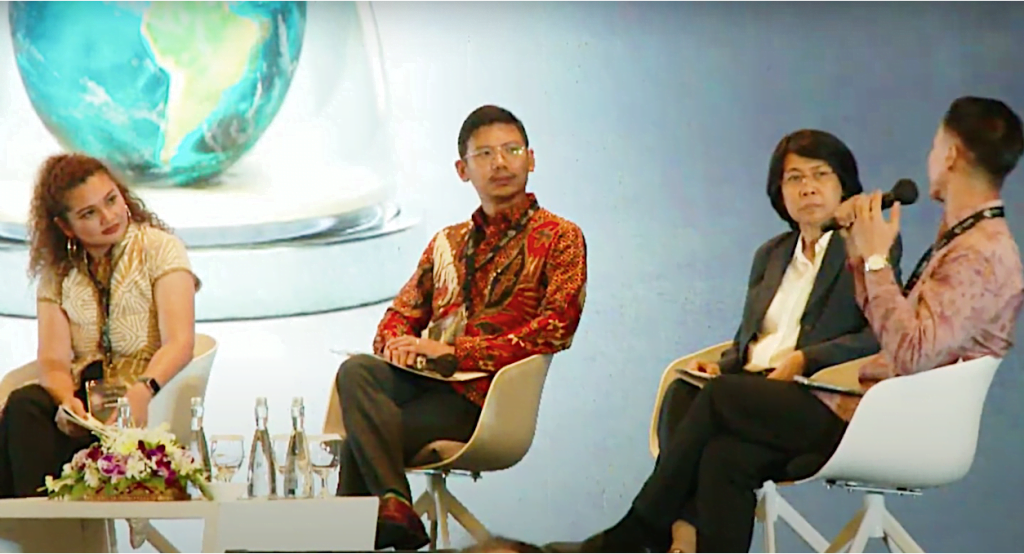
The first panel of the summit brought together representatives from Nestle Indonesia, BASF and H&M Indonesia to discuss and share experiences on their respective value chain decarbonization practices and challenges. In the current global value chain, each product will link various industrial actors and at each stage in the value chain will produce emissions. Collaboration between business actors and information sharing is important to map emissions released in the value chain, and then formulate science-based steps to take decarbonization actions.
Read more: Industrial Decarbonization Must Involve Entire Corporate Value Chain
Call for Ambitions: Hard to Abate Industries
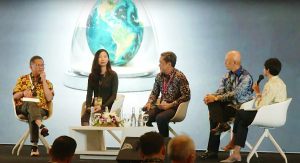
Modern civilization cannot survive without core industries, which also happens to be hard to abate. Cement, steel, petrochemical and fertilizers are among core industries which have supported the growth of the world as we see, experience, and live in now. There are no business-as-usuals. Decarbonizing them requires a constant innovation on fuels, feedstocks, and production process. We need to have ambitious planning and long-term vision for these industries.
Decarbonizing the Power Grid
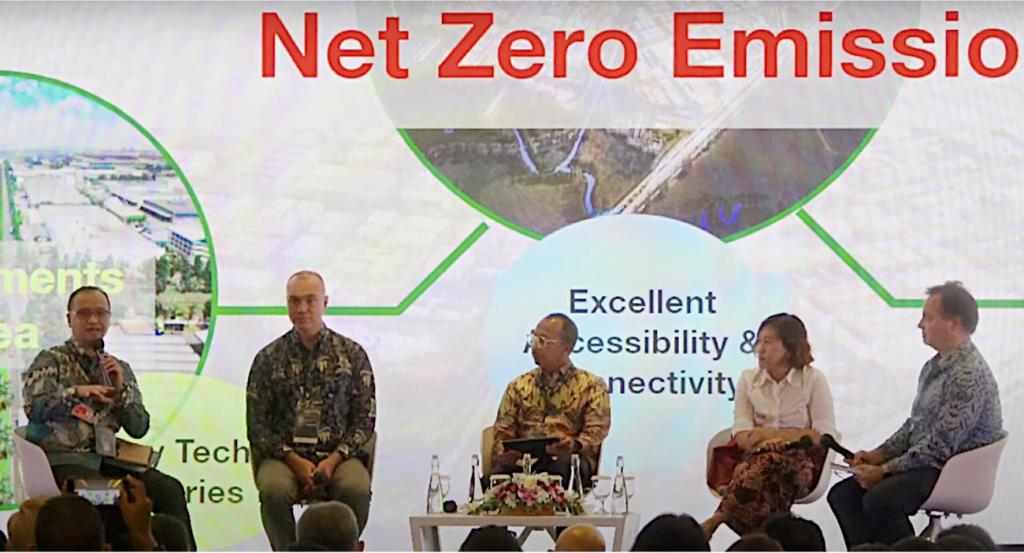
Demands from export destination countries such as Europe that include emission variables (including energy) as a condition for entering their markets, make the urgency of the transition towards renewable energy even more urgent. This discussion emphasized the importance of accelerating decarbonization actions from various actors, not only business players, but also the Indonesian government in providing infrastructure and regulations that support the low emission energy transition.
Read more: Private Sector Industries Call for Urgent Action to Decarbonize National Power Sector
Corporate Climate Governance
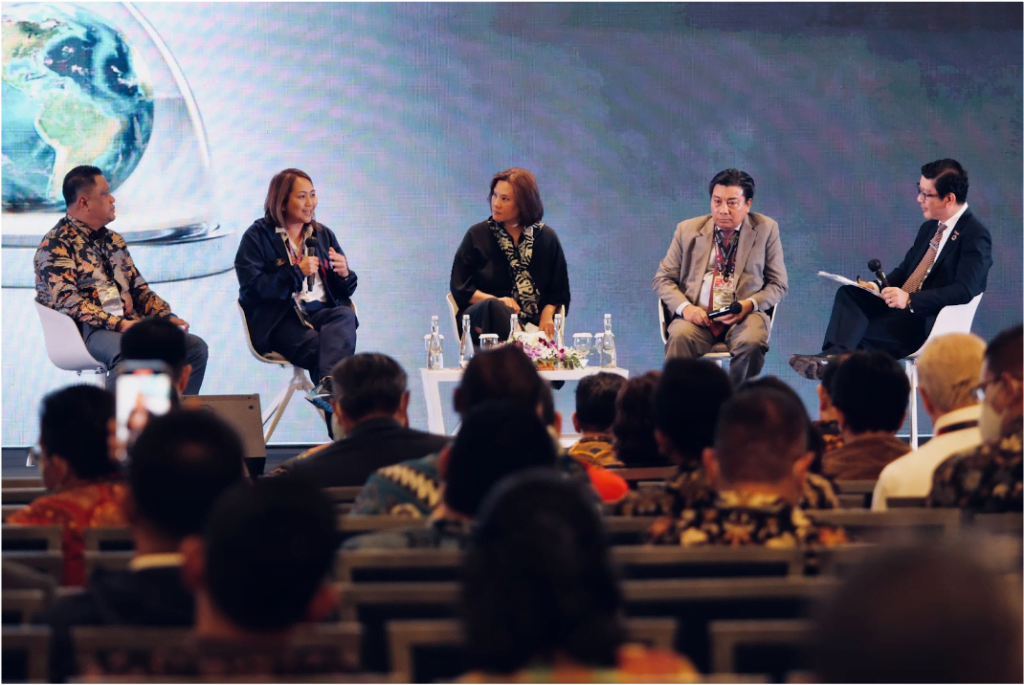
The discussion in the fourth panel of the Indonesia Net Zero Summit 2022 emphasized that the role of leadership, and specifically corporate governance in the business context, plays an important role in ensuring that every climate action commitment is planned and executed properly, so that not one person or company is left behind in this joint transition. In Indonesia, this aspect is proven to be a strong factor in accelerating the transition, as CDP observes an upward trend of Indonesian companies’ board-level involvement in climate issues.
Read more: Corporate Governance for Accountable Climate Action Sees Upward Trend
Engagement Through the Financial Sector
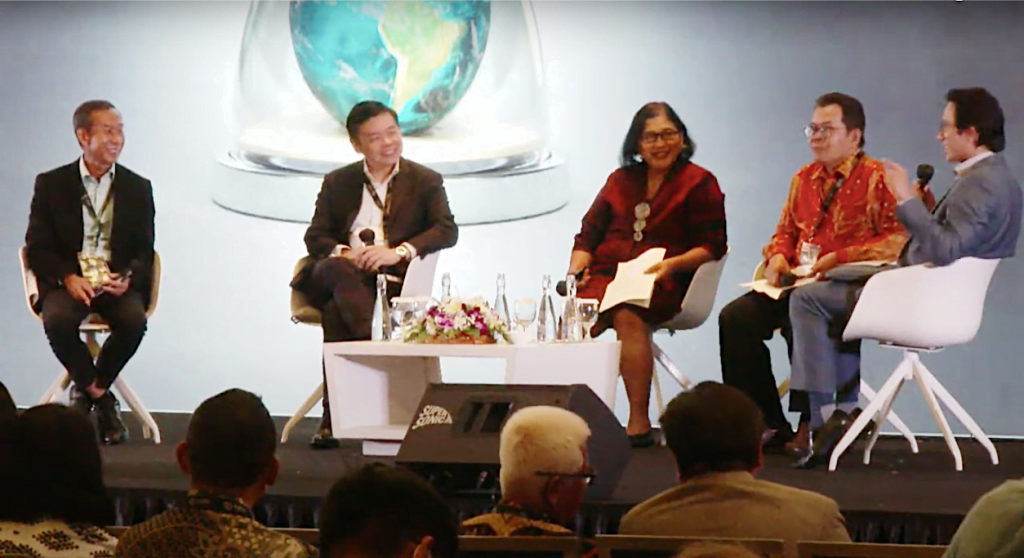
The financial sector has an important role to play in driving systemic decarbonization measures. In this panel discussion HSBC, Schroder Indonesia and IAI explored the steps that have been taken to encourage investment destination companies to apply sustainable principles and put them into action plans as one of the important variables for investment decisions. IAI also emphasizes the importance of accountable sustainability reporting standards which can be used as a reference, so that this will attract green investment to enter Indonesia.
Read more: Standardization for Sustainability Report Audit Necessary to Attract Green Investment
Thank you to our sponsors for making the summit happen!


